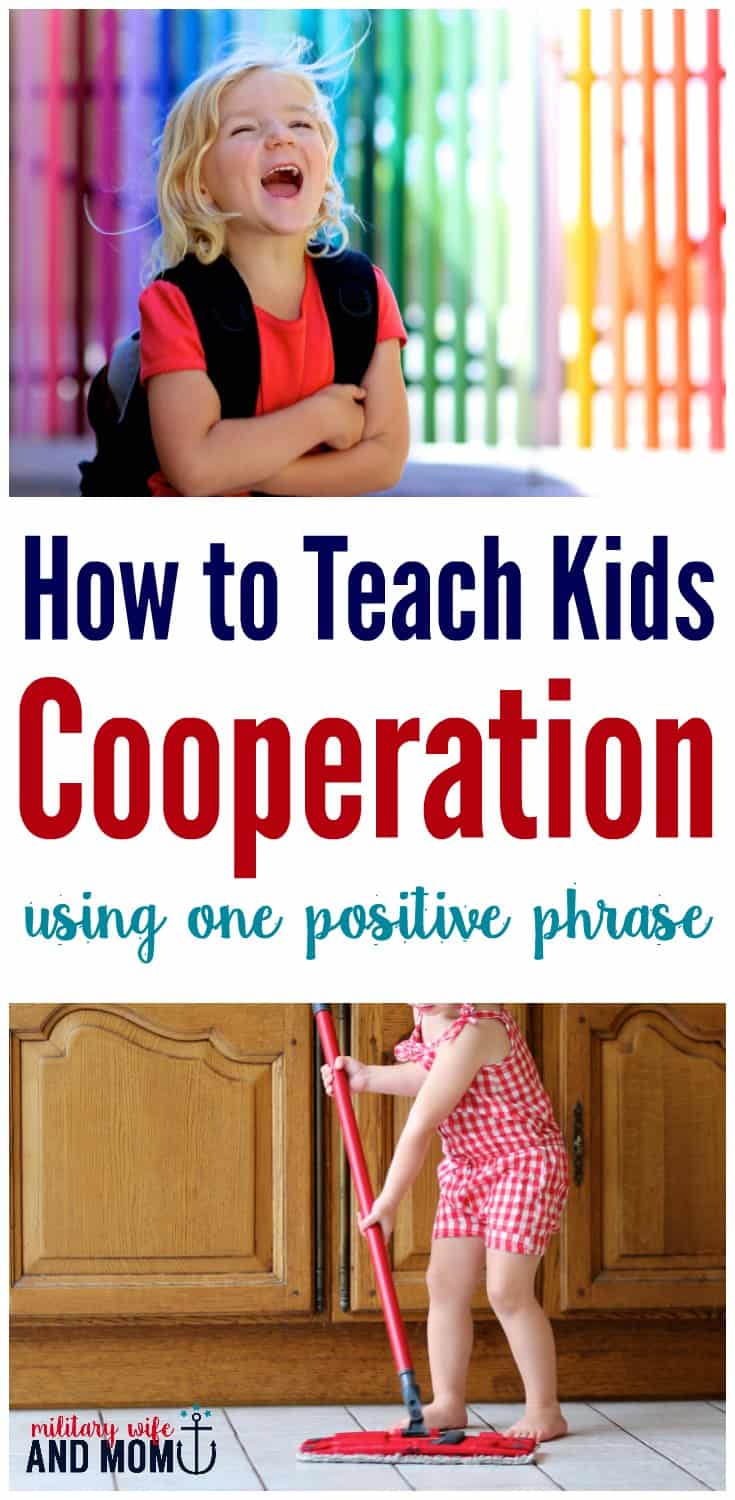I felt increasingly anxious about leaving the house on time. My kids don’t do well when they are rushed, and considering we went to bed late the night before, we started our morning routine about 30 minutes later than usual.
I ran around like I was operating a NASCAR pit stop.
Pack lunches. Check.
Feed kids breakfast. Check.
Make sure kids get dressed. Check.
Skip teeth brushing (let’s be realistic). Check.
Pack bags for the day. Double check.
Take gulps of coffee in between tasks. Triple check.
Things were going relatively smoothly — and yet — I could feel the meltdowns heating up faster than my uneaten oatmeal on the stove.
There was only five minutes remaining before we needed to leave the house. But I still had to accomplish ONE important task: Get the kids out the door and into the car.
This may seem like no biggie to most.
But in our house, this is the big parenting machismo.

post contains affiliate links, see my disclosure here.
How to get your kids to cooperate.
About six months ago, I read a book by Dr. Theresa Kellam called The Parenting Survival Guide. In the book, she offers a unique (and totally genius) guide for doing special playtimes with your child. The best part is they only require about 30 minutes once a week.
I implemented her unique special playtimes, and they served as a beautiful tool to improve behavior and build peace in our home.
But…
By doing “special playtime” with my oldest, the best tool I gained was a magical phrase that helps kids cooperate and listen.
At the end of each special playtime, Kellam instructs you to give a five-minute warning where you say this:
“You have five minutes left in your special playtime.”
Week-after-week, my son and I would finish our special playtime together, and I would give some variation of the five-minute warning.
“In five minutes, our special playtime is over. And I’m going to pick up the toys.”
“In five minutes, our special playtime will end. We will play again next week.”
Here’s the crazy part.
My son always struggled with transitions. Anytime he was moving from one task to the next task, there was a big power struggle between him and me.
He is such a strong willed child, and all his stubborn behavior left me feeling exhausted and frustrated.
But in special playtime he would just picked up the toys and accepted that it was time to move onto something else.

I used to say to myself, “Really? That’s it? A five-minute warning was all he needed?”
Surprisingly.
Yes.
All it took was some forewarning to help him transition from activity-to-activity without a power struggle or tantrum.
Once I saw how well this five-minute warning worked in the special playtime, I started to use it throughout the day.
“In five minutes, it’s time to pick up the toys and start your bedtime routine.”
“In five minutes, it’s time to turn the TV off and leave the house.”
“In five minutes, it’s time to make mom a venti cappuccino.”
(Okay…so I didn’t really ask for a cappuccino.)
Not only did this five-minute warning cut meltdowns and power struggles in half, but I combined them with these printable routine cards, and the results were impressive.
My strong willed child started saying things like, “Okay mommy.” And for a while I kept thinking, “Who is this child?!”
Then I realized that all he needed was a reasonable warning so that he could finish what he was doing.
Every morning.
With only five minutes left before I needed to rush out the door with my kids, I made an announcement.
“In five minutes, we are leaving the house for school.”
“I’m not finished!” my oldest declared — as expected.
“You’re not finished yet. You can finish playing and getting things the way you want. We are leaving in five minutes.”
{silence}
What’s funny is that I wasn’t sure he was going to come out the door cooperatively. But sure enough, when it was time to leave, he pouted a bit (for good measure of course), then picked up his cars to bring them along (worked for me!) and walked out the door.
This is the most important part.
Once he came out the door and we reached the elevator I named the behavior I liked.
“You left the house when mom said it was time to go. That shows you’re cooperative.”
It doesn’t work in every single situation (nothing in parenting does), but wow, this has cut way down on back talk and power struggles.
And by recognizing and naming each time he cooperated, he started to do one thing: cooperating.

Print this free toddler listening checklist.
This post comes with a free printable checklist to help with toddler listening. I always have the hardest time remembering these phrases. This printable simplifies it!
Here is a sneak preview…
Download Your Free Printable
- Download the checklist. You’ll get the printable, plus join 37,000+ parents who receive my weekly parenting tips and ideas!
- Print. Any paper will do the trick, but card stock
would be ideal.
- Place it on your refrigerator. Check things off as you go and don’t forget a thing!
Want more on parenting?
- How to Handle Back Talk and Disrespect Like a Parenting Warrior
- One Surefire Way to Raise Responsible Kids
- 9 Quick and Clever Meal Time Hacks for Busy Moms
- Wish Your Kids Slept Later? This Mom Trick Will Change Your Life
I've created a free email series just for you! If you are struggling with teaching your child to listen, this series will help transform your parenting. Yes, really. I've seen my proven strategies work time and time again for parents. I know it can work for you too.
After taking my free email series, you will:
- Learn simple, yet highly effective listening strategies
- Experience a stronger connection with your child
- Enjoy more peaceful parenting days
- Gain more cooperation from your child















This is not something that is special . Lot of mommies do this every single day. It is s time tested strategy that worked for the last millennia I guess ?
Great reminders though, of the important impact of transition and consistency! As a mom of 4 (ages 11 to 20), I don’t regret taking the time to read this blog post.
I also learned the magic of the five-minute warning! One of my kids has a hard time transitioning, and if I don’t give those “heads up’s,” the day is a wreck. I imagine adults would appreciate this, too. After all, I wouldn’t want to be so focused on an activity only to be told abruptly that it’s time to stop. That phrase makes a huge difference!
And I love how you follow it up with praising his behavior. It’s so much easier to praise positive behavior than to correct difficult ones.
Your blog is fun to read. You have a real knack for writing life as it really is.
I really, really appreciate the reminder! I use the “five minutes” rule for special events, like playing at the playground or the pool, but have never thought of using it to warn my 5-year-old that we need to be out the door in five minutes, etc. Instead, it’s always been “We need to leave now!” and I realise now how she might feel that it’s unfair that she has to abruptly stop what she’s doing. So I really appreciate the tip! It’s still an eye-opener even though it’s something I might already know. Thank you so much!
I’m a mom of 3 and that is how we usually roll! I have used the five-minute warning too (endless of times) and also worked for us, glad it worked out with your kids too! Thank for sharing this Lauren, what a fun read!